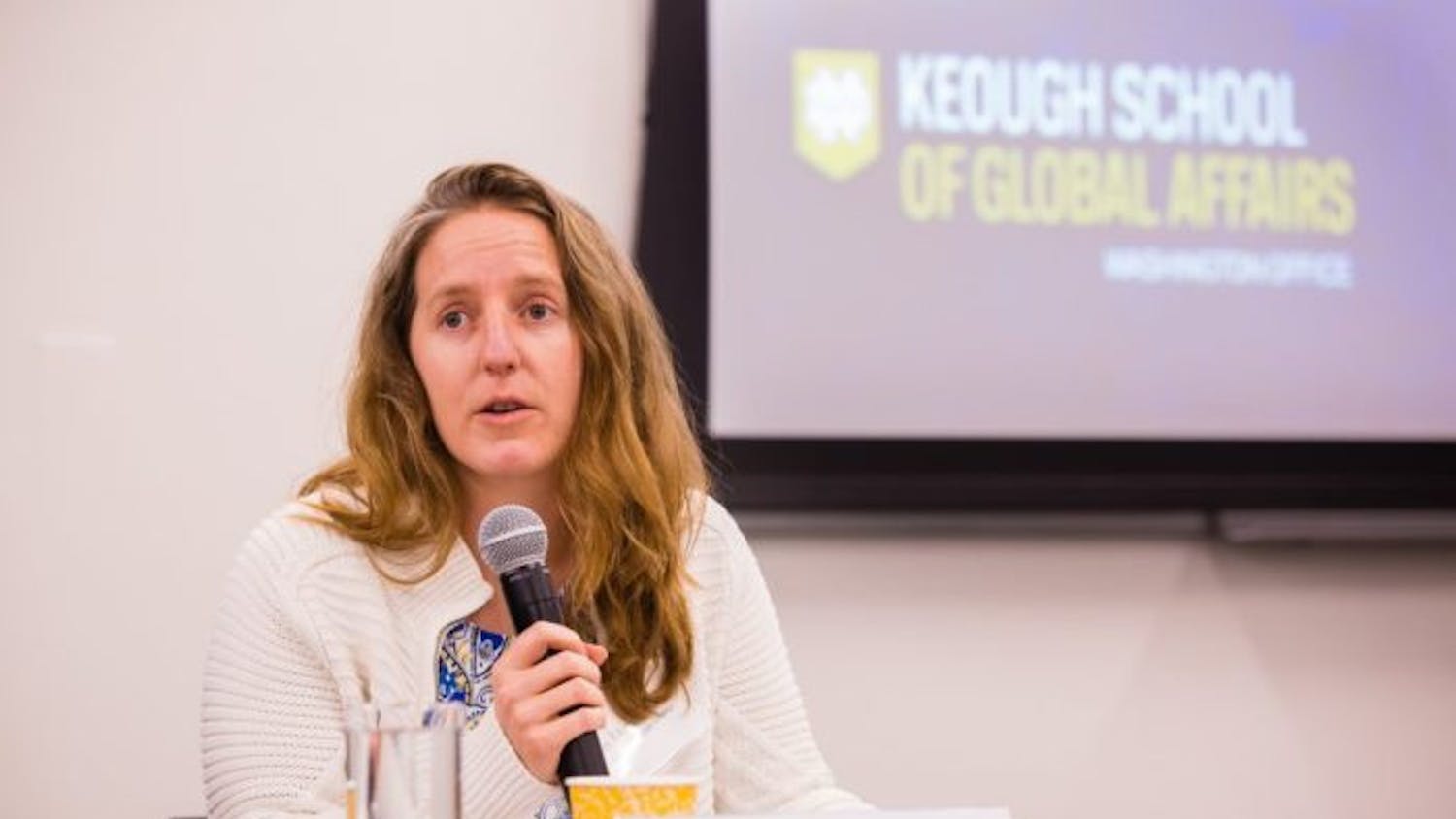Daniel Karpowitz, the author of “College in Prison: Reading in an Age of Mass Incarceration,” discussed the higher education of prison inmates on Wednesday afternoon in McKenna Hall. Karpowitz said the concept of college-in-prison programs, which aim to provide degrees to inmates while in prison, is representative of a much bigger idea.
“College-in-prison awakens lurking doubts about whether anybody every truly changes — a question that lies at the heart of nearly all thinking not only about education, but also about democracy itself,” Karpowitz said in a reading from his book.
Karpowitz said people are split on whether college-in-prison is in fact a positive development within the prison system.
“The angry and resentful rejection of opportunity for people who have done bad is very common,” Karpowitz said.
However, Karpowitz said the importance of college-in-prison is in part because the current prison system only claims to provide rehabilitation, but, in reality, it is a toxic environment for inmates.
“All of the prisons I have entered strike me as places of waste that perpetuate and intensify both racial and class inequality,” Karpowitz said. “As a result, prisons, among the most important and pervasive public institutions of our age, undermine our democracy and do a disservice to the republic they are meant to serve.”
Karpowitz, who also serves as the director of policy and academics for the Bard Prison Initiative (BPI), said BPI offers incarcerated men and women the opportunity to better themselves and earn a college degree in prison, in an attempt to counteract the current prison system’s failings.
“Nearly all of the students the college has engaged in prison are guilty of serious crimes — most of them violent crimes,” Karpowitz said. “On the other hand, I see most forms of punishment as unfortunate mirror-images of the violence to which they respond.”
Karpowitz said the program aims to find incarcerated men and women whose high intelligence has never been fully nurtured.
“The characteristic student will have dropped out and fled from school after the ninth grade,” Karpowitz said. “Our most accomplished students are typically the ones who fled school the earliest.”
Karpowitz said the importance of a college degree to an incarcerated person cannot be overstated.
“A degree is both a practical credential and a power symbol, especially to students who are the first in their family to go to college,” Karpowitz said, reading a passage from his book.
This education gives the inmates a chance to learn and succeed, and once their sentences are finished, they are truly ready to contribute to society with what they have learned while incarcerated, Karpowitz said.
“This is about the love of learning, this is about the celebration and manifestation of the liberal arts and this is about inclusive excellence in American education, which is a meritocracy,” Karpowitz said.
Karpowitz said the significance of education is best summed up by the mother of Easy Waters, a former inmate who received his college degree in prison and is now an accomplished poet and novelist. Water’s mother was a very vocal supporter of her son’s education, even while he was incarcerated.
“‘You can lose everything — possessions gained can always, always be taken away. But an education — nobody can ever take that from you,’” Karpowitz said, reading a quote from Water’s mother in his book.
Read More
Trending









